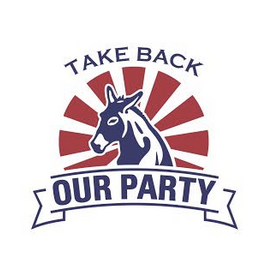By James Kwak Chapter 1 of my new book is now available at The American Prospect. (If you missed the introduction, you can find all the chapters here as they are released). This chapter, “Their Democratic Party,” is a brief history of the takeover of the party by the New Democrats in the 1980s and 1990s. It describes how, in the aftermath of the crushing electoral defeats of 1980 and 1984, a new generation of party leaders—including Bruce Babbitt, Chuck Robb, Lloyd Bentsen, and of course Bill Clinton and Al Gore—chose to run away from the historical Democratic legacy as the party of workers and the poor. Instead, they trailed in the rightward footsteps of the Republicans, associating the party with business, the private sector, finance, and economic growth. Their economic platform
Topics:
James Kwak considers the following as important: syndication
This could be interesting, too:
James Kwak writes COVID-19: Who Bears the Losses?
James Kwak writes Thoughts About COVID-19: PPE
James Kwak writes About that Democratic Primary …
James Kwak writes Take Back Our Party, Print Edition
By James Kwak

Chapter 1 of my new book is now available at The American Prospect. (If you missed the introduction, you can find all the chapters here as they are released).
This chapter, “Their Democratic Party,” is a brief history of the takeover of the party by the New Democrats in the 1980s and 1990s. It describes how, in the aftermath of the crushing electoral defeats of 1980 and 1984, a new generation of party leaders—including Bruce Babbitt, Chuck Robb, Lloyd Bentsen, and of course Bill Clinton and Al Gore—chose to run away from the historical Democratic legacy as the party of workers and the poor. Instead, they trailed in the rightward footsteps of the Republicans, associating the party with business, the private sector, finance, and economic growth.
Their economic platform was that markets are the sole source of prosperity and that government should limit itself to nurturing the private sector and ensuring that all people can participate in the benefits of growth. That’s why the principal Democratic domestic policy achievements of the past three decades have been welfare reform, financial deregulation, and a health care reform plan based on private competition and initially conceived by the Heritage Foundation.
This is still the dominant ideology of the Democratic establishment:
“Leaving aside the recent progressive insurrection … it is a party devoid of any compelling idea of how to address the fundamental economic challenges our country faces today: wage stagnation, the rising cost of health care and urban housing, the precariousness of most jobs, and extreme inequality. After defining themselves in opposition to old-fashioned government spending programs that smacked suspiciously of redistribution, after embracing the doctrine of market-based solutions, and after insisting for decades that economic growth would solve all problems, establishment Democrats today have nothing left to offer.”
Enjoy!
